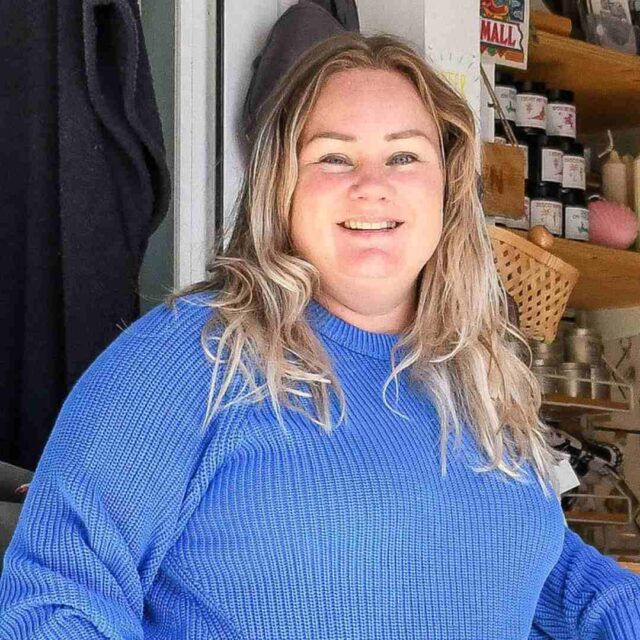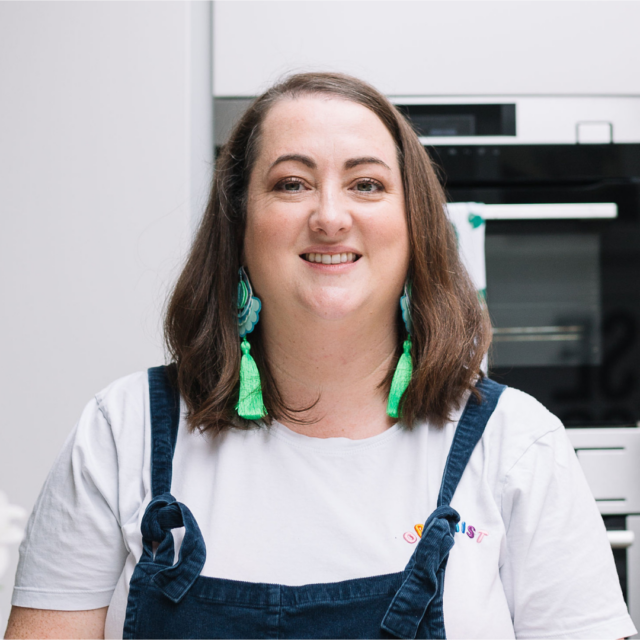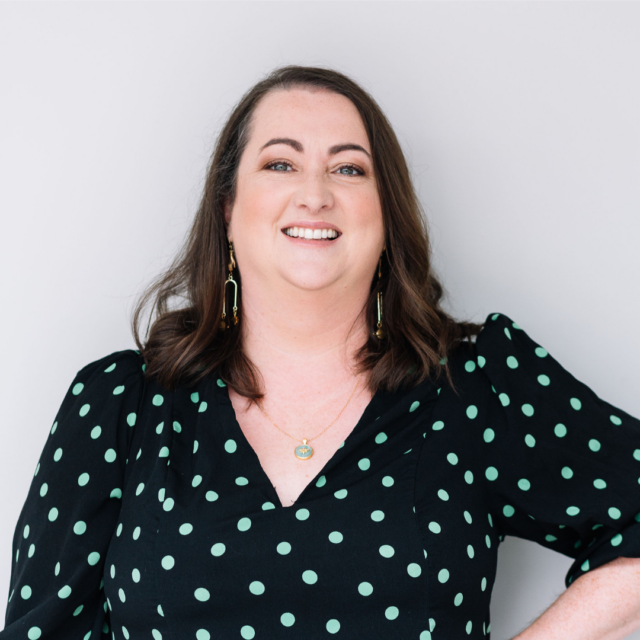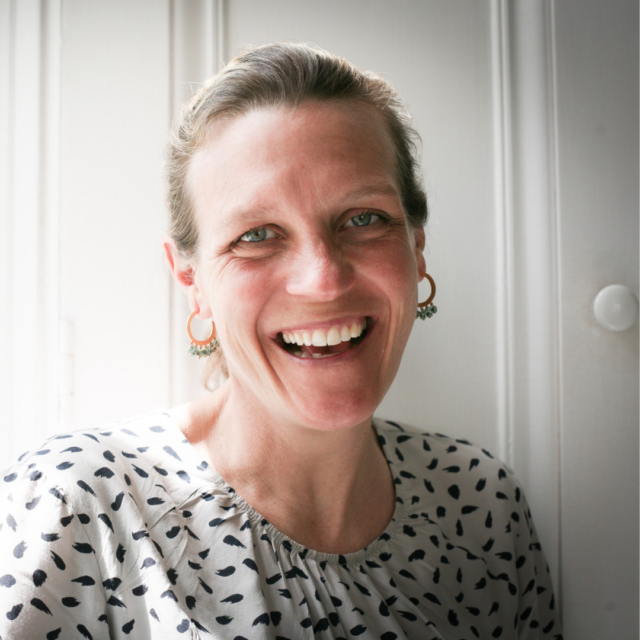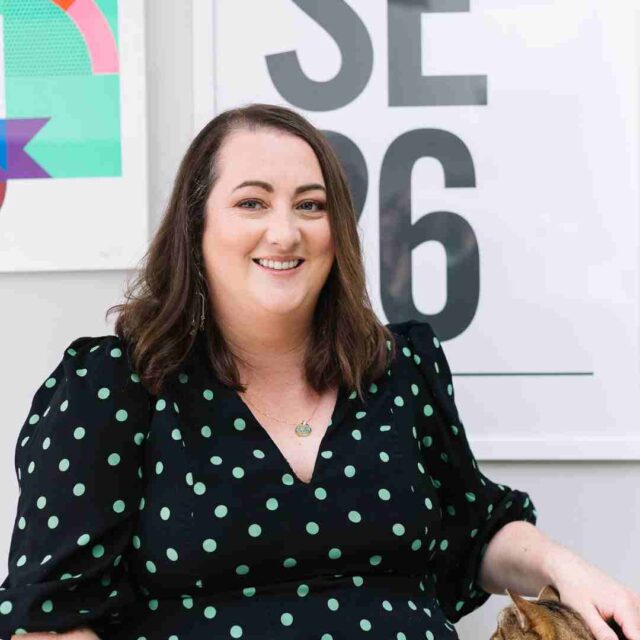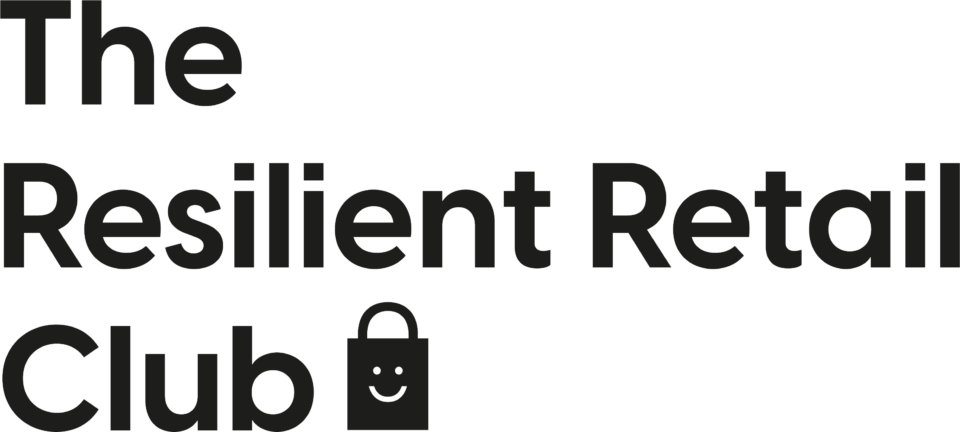Welcome and happy new year. Hi, it’s Catherine Eardley. I’m your host and the founder of the Resilient Retail Club, which is my membership group and mastermind for product businesses. Welcome to the first podcast episode of 2024. Today we are on episode number 179 of the Resilient Retail Game Plan. I’m so excited that you’re with me.
Did you have a good break? I hope that you’ve got a chance to take some time off over Christmas today. I wanted to start 2024 with something of a reflective episode. I’ve been running my product business mastermind for six months now. I kicked it off in the summer. Prior to that, I worked as a one to one mentor and consultant with product businesses for about five years before that.
But in the summer, I came up with a completely new program, which was combining one to one with also the magic of group work. And it has been absolutely fantastic. I would say, hands down, the most exciting thing I’ve done in my business so far, and I’ve been absolutely loving it. What I thought would be really interesting to share today is some of my thoughts after running the mastermind for six months, and to really share with you what that says more broadly about success as a product business owner in 2024.
The people in the mastermind have businesses of various different sizes. Some are very large, very well established. Some are earlier on in their journey or at different stage. But the thing that unites every single one of those product business owners is their ambition and their commitment to their business.
And that’s what really shines through and has taught me a huge amount about what it means to be a successful driven product business owner in 2024.
Confidently plan, launch and manage your products and feel in control of your sales numbers and cash flow to help you build a resilient retail business.
So what I’m going to do is run through with you today, seven things that I have learned from working with the masterminders. And what I think that says more broadly about success in 2024 for product business owners, e commerce sellers, brands, and independent retailers.
So the first thing that I wanted to touch on is something that has come up, not just with the people that I’ve worked with, but actually during a lot of the calls that I have with people about the mastermind. So before anybody joins the mastermind, we have a call, an exploratory call, it’s just really to find out more about you.
Just a conversation really about where you’re at with your business, how it’s going for you and where you’re trying to get to. And during that call, I I’ve had lots and lots of these calls in the process of launching two cohorts now of the mastermind and I’m working on the third cohort now. And so it’s meant that I’ve got to have really great in depth conversations with lots of different product owners and get a really good sense of what they’re dealing with right now.
Lesson 1: Decision fatigue is real. Get support making decisions in your business!
Catherine Erdly: And one of the things that has come up time and time again is just how difficult it is when you’re procrastinating and how much time and effort and energy gets wasted as business owners trying to decide what the right thing is to do. And one of the things that I often conclude when I’m talking to people, which is really ironic, is that we start our businesses because we don’t want people to tell us what to do.
We’ve had enough of having a boss. We really want to do something where we’re the ones who are in charge. We get to make all the decisions. Then it hits a certain point at some point in your business where you actually think to yourself, do you know what? I really could use someone to tell me what to do.
So it’s really ironic. It’s, it’s such a, it’s just so not expected when you start off thinking, right, I really want to be the one making the decisions. But you can get decision fatigue. You can get tired of being the only person who really knows the ins and outs of your business and really understands the nuances of the decisions that you’re trying to make.
And so people do want some direction. Now, of course, my job is as a consultant and a mentor is not to tell you what to do, not to set you tasks and berate you if you don’t do them like a boss, but I will help you make decisions. With the mastermind, we have a laser focus call every single week where I check in with people.
And that means that we get to make those decisions quicker. You can ask me, should I do this or that? I’ll give you my input. We can make a decision and we move on. And all of this is super important when it comes to cutting through that procrastination and just basically being able to move forward.
Procrastination is such a time waster. And there’s also that feeling of when you’re really in your head as a business owner and you just don’t really know what the right decision is and it can feel quite paralyzing. So if you’re somebody who is experiencing procrastination, finding it hard to keep making the decisions, finding it hard that the weight of all those decision-making is landing on you, then just know that you’re not alone.
This is a common issue and it is really helpful to have somebody that you can talk to to help you make those decisions faster.
Lesson 2: Leverage Big Bussiness Tools to be More Successful
Catherine Erdly: The second thing that I’ve really reflected on, and this really is part of the part of the mastermind, but also part of the work that i’ve done on a wider basis for a long time with small businesses in fact Really what I tailored writing my book around Tame Your Tiger.
And that is that small businesses can really benefit from big business tools.
Catherine Erdly: So I spent 17 years in the high street retail industry. So I was working exclusively on sales strategy, sales planning, stock management, profitability, all of those things, working alongside the product groups, the buyers and designers to really help them understand how their creative ideas made money.
And so it is something that it was just drilled into me time and time again. You always had a sales plan. You always had a sales strategy. You really looked at the building blocks of what’s going to grow your sales. And you definitely, definitely always had a stock plan that you really zoomed into.
That’s been something that I’ve worked on a lot with my mastermind members has been. We’ve been able to really go into all of that detail that I outlined in Tame Your Tiger and all of those tools that I’ve created, things like a break even analysis, a sales forecast, and also a stock plan.
And we’ve been able to really dig into that and do it on an ongoing basis and do it collaboratively. And depending on what that particular business needs, we’ve been able to dig in, create those documents and actually work with them on an ongoing basis. And so that the founder themselves has got really confident in using them.
And I don’t think I’m out of line in saying that this can be absolutely transformational for a business. So to work with somebody who’s feeling like they were really winging it in terms of their profit margins and to be able to go through them, all of their pricing and their profitability. So they feel really confident and good about how much they’re selling their products for that can be really transformational.
To work with somebody who has this sneaking feeling that they’ve got too much stock, but don’t really know what to do about it. Help them identify which product areas that stock is sitting in, helping them come up with ways to clear through it, helping them be more disciplined so that they’re not buying as much.
They’re turning through their stock more quickly and therefore their profit is going up substantially. That is all the kinds of benefits you get from applying these big business tools to small businesses. And it’s not to say that we should try and emulate the big businesses, not whatsoever.
But I think one thing I’ve really seen from the mastermind and that working with people on the really extensive basis on a weekly basis, being able to put some of these tools into place and really work through with them, how they can be applied in their own business. It more than ever has really shown me how these big businesses tools can make a significant differences to the small businesses when they use them.
Lesson 3: Working with a Mindset Coach is so Impactful to Your Business
Catherine Erdly: The third thing that I have really learned through the mastermind is all about mindset. So one of the things that I wanted to do, I was determined when I set up this mastermind that I wanted to be able to address mindset as well as the business side, the numbers, the structure, the strategy and everything else.
And so bearing in mind that I very much sit on that mentoring and consultant side of things, I wanted to bring in a coach. And so I have a fabulous coach, Annabelle, who works with me on the mastermind. So everybody who takes part in the mastermind gets sessions with Annabelle as well. And that has made a really big difference.
I can tell talking to the people in the mastermind that it is really helped them to have somebody who is helping them address again, not just the structure of the business, not just the numbers, but then also things like imposter syndrome, lack of confidence, feelings of overwhelm, all of these things that are so common for business owners.
It is really key to have them addressed and It’s really fascinating working in partnership like this with a coach because I’ve always known how important these elements are for the people that I work with on a day to day basis when I’ve been doing mentoring consulting previously, but to actually have them working on their mindset and their beliefs about themselves and their business at the same time as actually working on the practical side of the business has been really powerful and it’s really highlighted to me just how important that is. So again, if you’re feeling stuck, if you’re feeling that gnawing imposter syndrome or overwhelm or anything else like that coming in, then I do suggest you think about your mindset, how you can work on that, how you can get support as that as a founder, because it is so important.
And I always say it’s one of those really annoying things about running your own business. It would be so, so much easier if your mindset, your beliefs, they weren’t the things that made such a massive difference to the business performance, because then all the pressure wouldn’t be on us, not only to spin all the plates that we have to spin, juggle everything that we have to juggle, think about all of the practical piece, but then also keep our own mindset strong and our own beliefs really firm and our beliefs in what we can achieve really firm. So again, if you’re feeling it like it’s a lot to manage by yourself, you’re not alone.
This is something that I see time and time again. So mindset. Self belief is hugely important for business owners and doing it in this way in the mastermind and working with a coach has really, really highlighted that for me.
Lesson 4: It helps to talk with other people who understand what you are going through
Catherine Erdly: The fourth thing that has really become apparent working with people in the mastermind.
And again, this is both of the participants, but also with all the people that I speak to on calls when we’re discussing whether or not the mastermind works for them. And that is just how lonely it can be running a business. There’s two different ways that it can be lonely because I talked to people who have e commerce businesses who are working predominantly either at their house or maybe in a unit and they are really working very much.
It almost sort of. Not with a huge amount of contact With other people and that can feel really lonely too and that can be feeling really difficult And the other way it can feel lonely is if you’re a bricks and mortar store owner For example, you may spend your entire day talking to people and you may spend your entire time working with a team but if you feel like you don’t have anyone that you can talk to about the stresses and the challenges that you’ve got going on, then that can be super lonely as well in a different way.
Not lonely in the way that you don’t actually see people, but lonely in the way that you need people. You don’t have people that you can share your thoughts and your burdens with. And a lot of people say to me on these calls as well, well, I’ve got obviously family friends around me, but they just simply don’t understand.
They try and be supportive, but they just don’t really get it. And I think that is so true. That is an experience that so many people have. I’ve been doing some feedback recently from the mastermind participants to see what they’ve liked about the program. And definitely the weekly call that we have, we have every Thursday 1 pm is a group call that people come to and if they’ve got busy weeks and other things going on, then maybe they won’t come every week or maybe they’ll carve that time out to come along every week so they can ask more questions. But a lot of people said, you know, just to be able to see what other people are going through.
To hear other people’s questions and to understand that they are not alone in going through the stresses that they’re going through right now can be really transformative because we don’t always get that as business owners. We don’t get that exposure to other people who are going through the same thing.
So. Be aware that, again, if you’re feeling, if you ever feel like it’s a lonely and, and that’s really difficult, wondering if that’s just you. It’s not just you. I promise you, lots of other people are thinking the same thing too, experiencing the same issues. Being a small business owner, being the boss, being in charge, being the head of your business.
It can even be harder with a team, as I’ve said, because then you’re really, You’re, you’re not willing to share all your worries necessarily with your team. And so it can feel even more difficult.
Lesson 5: Pre-planning your year is the best way to beat overwhelmed in your busy season.
Catherine Erdly: Okay. The fifth thing that I’ve learned from the mastermind is that the best tool that you have against stress is particularly stress in the fourth quarter is pre planning and It’s this is something that I work with people, especially it’s great when so, for example, the next cohort kicks off in January.
It’s really great when that is, um, something that we start working on in January in the quieter time of the year, because it means that by the time you get to the fourth quarter, then you’ve pulled forward lots of things that you might otherwise have been trying to juggle during the fourth quarter, which then just adds to that stress.
I really love to work on things like a trading calendar where you’re looking at a 12 month period and then really identifying all of the tasks that you need to deliver. The fourth quarter is your biggest quarters, your biggest sales opportunity. Then you really want to look at ways that you can move tasks out of that time and into earlier quieter times of the year if you’re a designer somebody who’s Producing collections you may well be needing to do your spring summer development for the following year During the spring of the summer of the year that you’re actually in so that you don’t get to this situation where you’re both simultaneously trying to deliver christmas sales and Your new collection for the year ahead So this is something that i’ve worked on with a lot of clients just trying to really move That stress out of the fourth quarter or if the fourth quarter is not your busy time Maybe back to school is your busy time Maybe the summer is your busy time Whatever that busy time is the best way to reduce stress and to give yourself the best chance of sales Success during your busiest time is pre planning and pulling tasks out of that busy time And that is definitely something that I’ve seen a lot this year working with The mastermind participants, uh, to really help them look at ways of trying to spread those tasks and bring them forward so that you are walking into your busiest season, feeling prepared.
Lesson 6: Spreadsheets can be habit-forming and are the key to your happiness as a retail business owner
Catherine Erdly: So truth number six, spreadsheets can be habit forming. What do I mean by this? Well, a lot of the time when people come to me, we’ll be talking about how they’re feeling about their business. One of the things people say is that they often feel like they’re winging, winging it.
They may not have a background in retail. In fact, I’d say the vast majority of people that I talk to don’t have a background in retail. And so they are often left feeling, just not really sure about their knowledge gaps, not really sure what they, they don’t know what they don’t know. And so for them, what we’re focusing on is getting to know some of the key numbers.
So I touched on this before when I was talking about those big business tools, but things like their profit margins, things like their Breakeven analysis, and then things that we can work on an ongoing basis, month in month out, like a sales plan, a stock plan, and also looking into things like, for example, for some people we’ll focus on their stock to sales ratio, which is really all about understanding which departments within their business are turning quicker than others and where they need to be focusing their money when they do have budget to buy new stock.
So all of those things, Are intimidating if you don’t really know where to get started or it’s not something that you’re used to working with but I can’t tell you the number of times that people have Started the mastermind feeling really unsure about these things feeling a bit overwhelmed Maybe they’ve got access to lots of reports in their shopify, but they never even really look at them They don’t know what to look at they’re not sure what to look at and over time we work on it and they get to the point where It can become quite habit forming.
As I said, people say to me, Oh, I’ve done it. I’ve updated my spreadsheet. I absolutely love it. Now I’m updated. I want to update it every week. I want to have a look at it on an ongoing basis and it can really be quite addictive. And I love, for me, I feel such. It’s such enjoyment when I see somebody who didn’t feel confident in their business numbers go from feeling like they’re winging it to really having a clear idea of how much money they’re spending, where that money’s going, what their profitability looks like, what their expenses look like in the business compared to their sales, and just a really, really strong idea of what’s going on.
And I think that it’s absolutely key to your Your happiness as a business owner is to feel confident that you’re doing the right thing in terms of your stock and your sales. And then you can focus on those revenue generating activities. So just be warned if you think you’re not a spreadsheet person, once you get into it, you may find that it’s something that you absolutely love.
Lesson 7: There is no magic formula. But if you make quick decisions, take action, see the results, and try new things you will see change.
Catherine Erdly: And the final thing that I’ve learned. Throughout the mastermind and also throughout working with product business owners, hundreds of product business owners over the last five and a half years is that there just isn’t a magic formula. And I’m always really clear with this, with people, when I talk to them about the product business mastermind, there isn’t a one size fits all approach that we can say, right.
This is what we’re going to do, and this is going to double your sales. And to be honest, if anyone tells you that they can do that, I would be extremely skeptical indeed. But what we do find is that there isn’t a magic formula, but there is an awful lot that you can do. And partly that’s about making decisions.
So you’re making quicker decisions, and you are really understanding your business. You’re trying things, you’re seeing the results, and then you’re trying new things. And so, although there isn’t, I guess if you were to say what is the secret, right, the secret is try things, react, and try different things.
Do more of what works, do less of what doesn’t, but doing it in a very controlled and considered way, not in a scattergun approach. You can set yourself a strategy, set yourself clear focus. And then if you’ve got someone to bounce ideas off and to check in with each week, then you can actually make progress a lot faster because you’re able to try things.
And you also have that voice that isn’t going to let you just give up the first time it gets a little bit difficult. And I think as business owners, it can feel really difficult when you’re feeling stuck, you’re feeling maybe a bit paralyzed, trying to make decisions and you’re not really sure which way to go.
So you may try something and then if that doesn’t work immediately, maybe you lose your enthusiasm for it and then go try something else. And so it can become very disjointed. And so that’s where the real secret of growing the business comes from is looking at what’s going on, deciding where you want to focus, setting yourself a strategy, and then taking action, taking action and evaluating the results. taking more action, evaluating the results. For me, that is the best way that I’ve seen people grow. I’ve worked with people who’ve grown their businesses from super small all the way up to, you know, seven figures. I’ve been with people who are on fast, fast growth trajectory, and it’s really fabulous to be along on those journeys.
And it’s really fabulous to be honest, to be along on the journeys where people, maybe it’s not a super fast sales growth, but they’re actually They themselves as the business owner feel so much better, so much more in control and so much less stressed. That for me is just as successful as well. And all of that comes from both of those success stories, the fast growth success story and that growth in confidence success story.
That all comes from being willing to pitch in, do the work, work with me, take advantage of my knowledge and experience, and then really go through and look at different elements of the business. Try things, see what works and see what doesn’t work.
What it will take to be a successful retailer in 2024
So those are my thoughts about what it takes to be successful in 2024.
Don’t lose time in procrastination. Take action, take direction. Think about those big business tools and how they can make a difference to your small business, especially, especially when it comes to things like managing your stock and boosting your profitability. Take care of your mindset because your mindset is absolutely crucial.
You like it or not, it will be impacting how your business is doing and you really do need to manage it in order for you to flourish. Number four, don’t be surprised if it feels lonely sometimes. It can feel really lonely. You’re not alone. If you feel like that, make sure that you have people around you that you can talk to and that you can bounce ideas off.
Number five, the best tool that you have against stress is forward planning is really trying to move from that being reactive to being proactive. So know what your plan is for the year ahead. And make sure that you’re taking action on it, making sure that you’ve identified those busy times that you can move tasks out of those busy times and give yourself a break and give yourself a fighting chance of delivering during those busy sales times.
Make sure that you are looking at your business numbers and don’t be surprised if after you get used to working with spreadsheets, you can find them a little bit addictive. And number seven, just know that there’s no magic formula. There is. My best advice to everyone is always try things, see what happens and, and make adjustments from there and keep moving forward and keep trying things and look for that continuous improvement.
Join my mastermind for retail business owners
So my mastermind is open. The next cohort is kicking off on the 22nd of January. I am filling the spaces now. There are only a limited number of spaces. I am booking calls. I will put the link to book a call into the show notes. And if you head over to resilient retail club. com and click on the mastermind tab, then you will see all of the information about the mastermind, including the link over there to book the call.
So don’t delay book a call. If you’re not sure if it’s right for you, then just drop me an email. I will always be honest with you upfront. But otherwise, if you are feeling like you could use that direction, that community, that input into your business, then I would love to talk to you about the mastermind.
If you have a moment as well, thank you so much for tuning in. Thank you to all of the podcast listeners out there. I appreciate every single one of you. I also want to say thanks to everyone who sent me their Spotify wraps, uh, where the podcast appeared on it. I was really so delighted to see that. And it’s just such a nice thing to see.
If you have a moment to rate and review the podcast, it does make a huge difference. If you are able to share it as well with your friends who anyone you think might enjoy it, then. Do you go ahead and we’d love to invite more listeners in. And of course, if you follow or subscribe, you’ll be the first to know about every new episode.
If you enjoyed today’s episode and you want to delve into a little bit more about what it takes to be successful, then I would recommend looking at 131 episode 131. We have got a rich. Deep back catalog of episodes. 131 talks about five traits that product business owners need to have. So I would love it if you would go check that out and let me know what you think.
Have a great week and we’ll be back next Thursday with a new episode.

